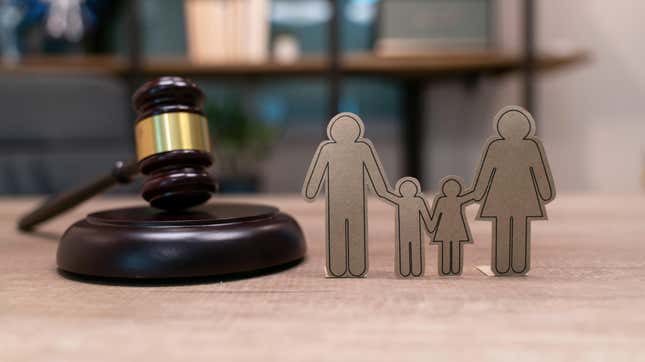In Dozens Of Cases, Courts Punish Men for Failing to Control Pregnant People’s Actions
A stunning new report finds that family courts are penalizing men who don't act as their woman's keeper.
JusticePolitics

An advocacy group has found that yes, family courts do discriminate against men in their proceedings—but not in the way incels think. Instead, men are being punished in family courts across the U.S. for failing to prevent the person pregnant with their child from doing something risky, like drinking alcohol, smoking marijuana, or injecting narcotics.
A report released Friday by the National Advocates for Pregnant Women found that in 56 cases across 14 states going back to the 1990s, family courts said that men were actually responsible for civil child abuse or neglect for failing to stop a pregnant person from engaging in potentially risky behavior like drug use.
One man whose story is in the report was accused of turning a blind eye to his partner’s history of substance misuse—no matter that he had gone to Al Anon daily for five years. “How am I supposed to force her to stop?” he replied in court when asked about how he could have kept his child safe. “I don’t own her; she is not a pet. I cannot force her. Even if I was married to her, I could not force her to stop using drugs.”
He told the family welfare system that he didn’t know the woman had used alcohol or marijuana during her pregnancy. He also told the court that he “cannot recognize the effects or symptoms of heroin and methamphetamine use.”
-

-

-

-

-

-

-

-

-

-

-

-

-

-

-

-

-

-

-

-

-

-

-

-

-

-

-

-

-

-

-

-

-

-

-

-

-

-

-

-








































